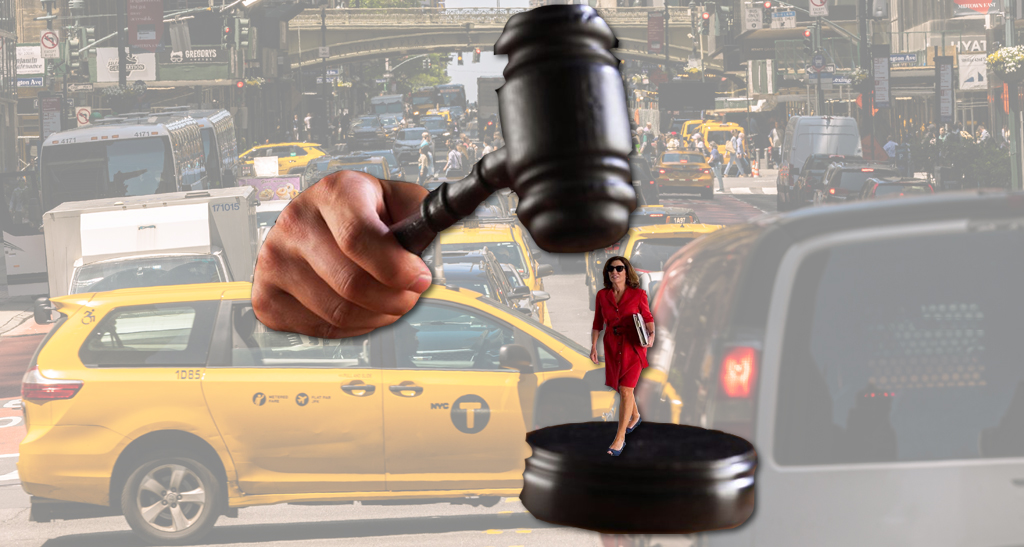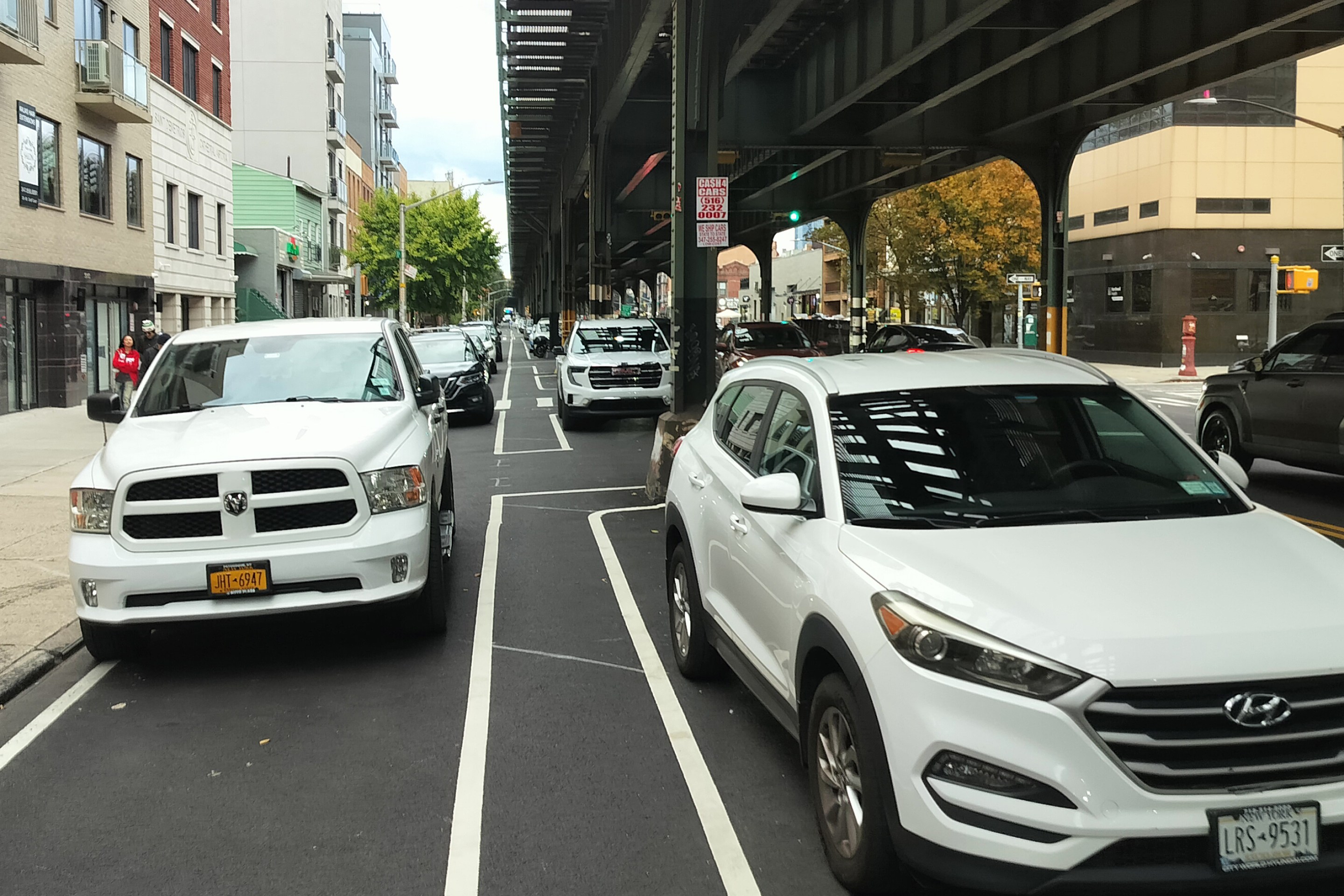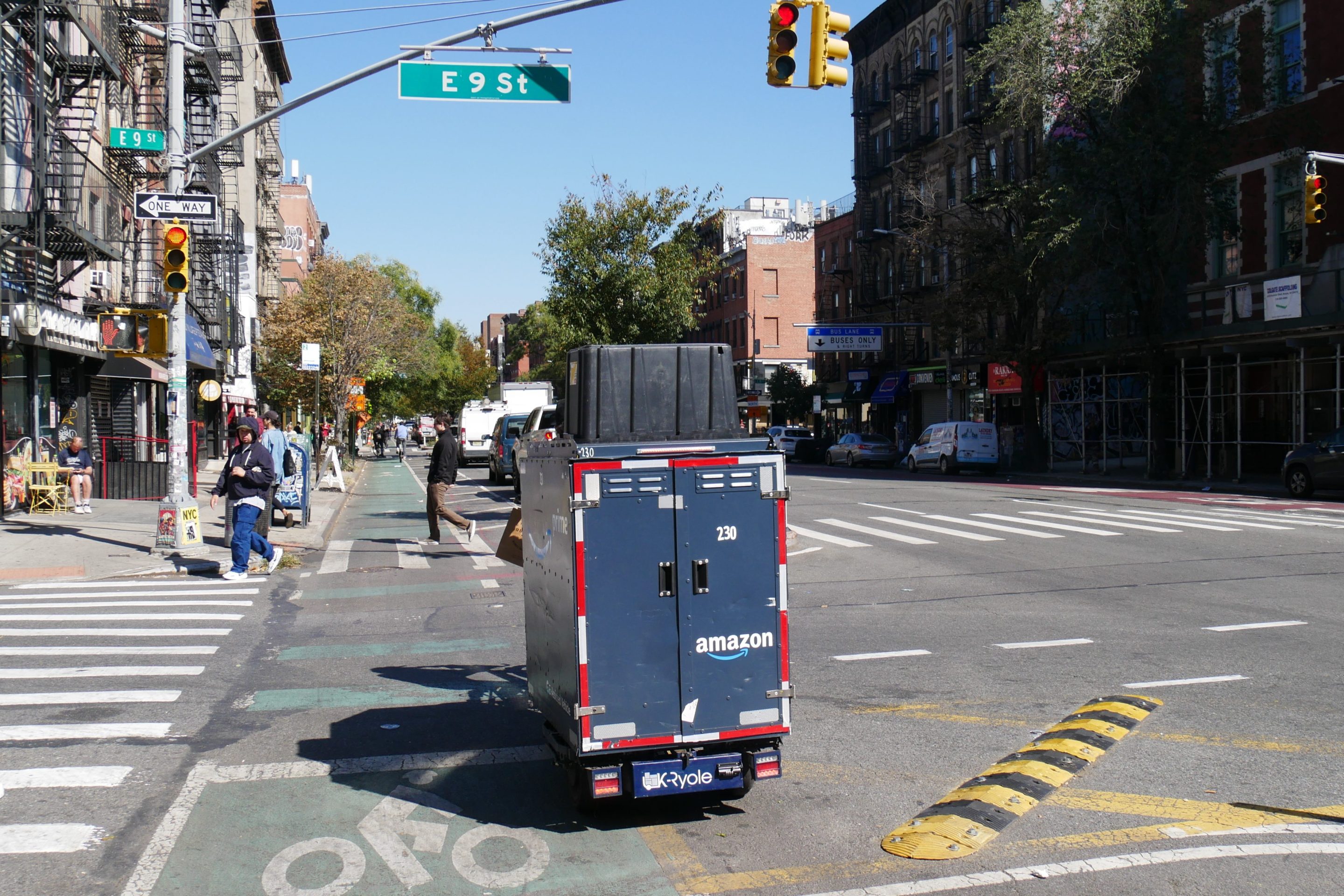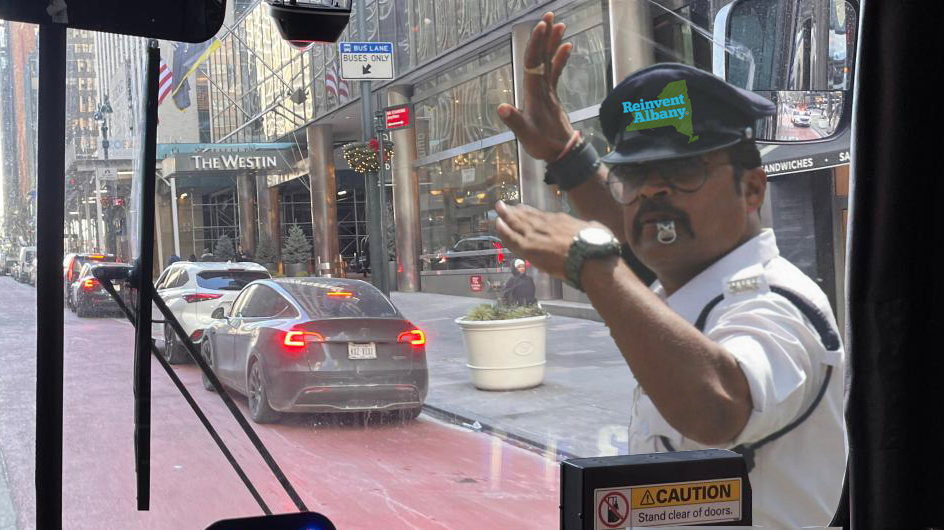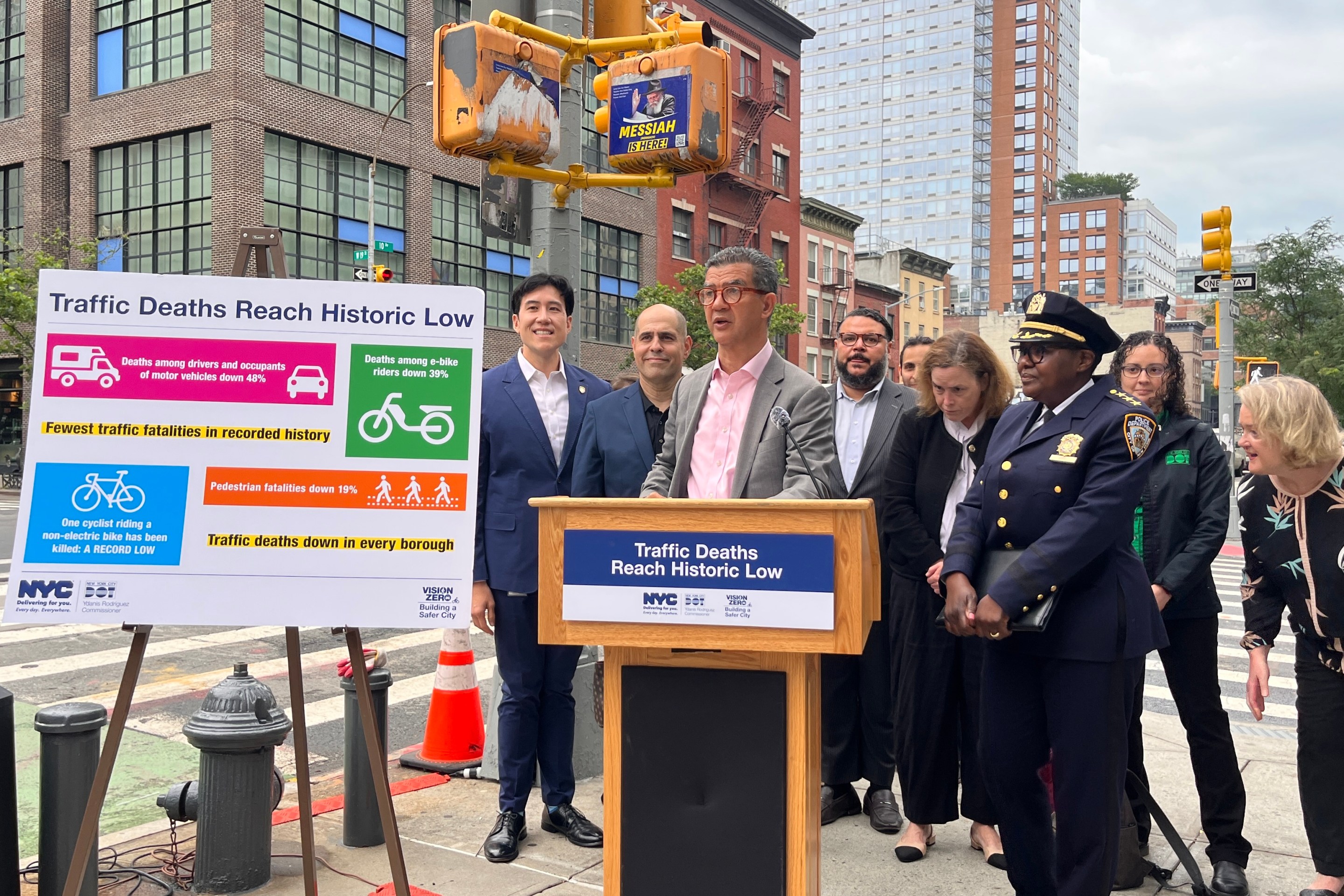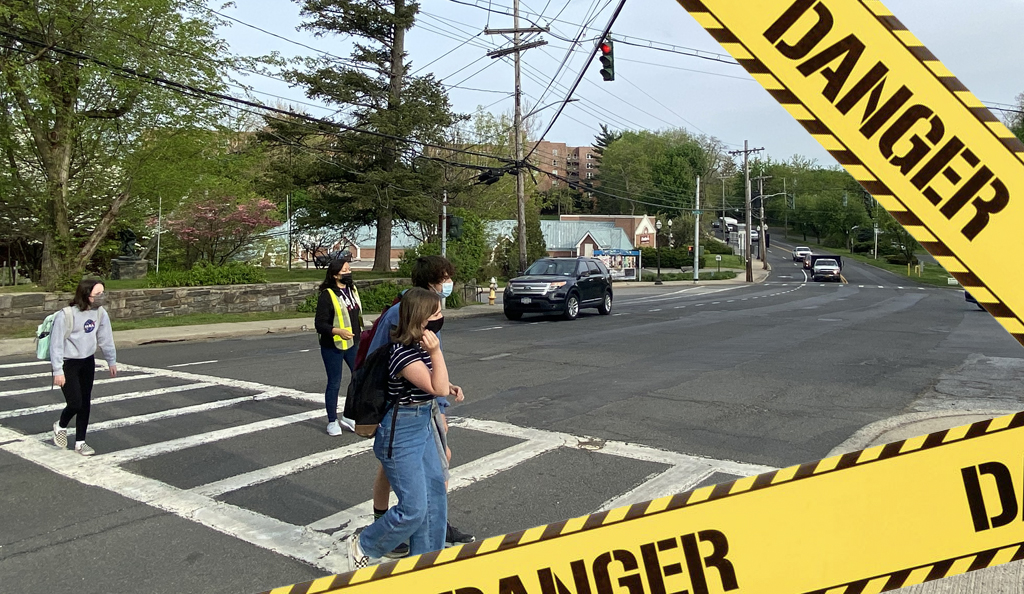A quartet of current and former state legislators waded into the lawsuit against Gridlock Gov. Hochul's "pause" of congestion pricing this week — telling the judge overseeing the case that the legislature never gave her or any governor the power to do away with the traffic toll.
If lawmakers had wanted to give Hochul or any other governor the power to call off the toll, they would have written it into the law itself, the legislators said in a brief filed Wednesday in support of the City Club of New York's lawsuit against Hochul's decision.
"When the Legislature has conferred power on elected officials to supervise public authorities… it has done so by expressly writing elected officials’ control over public authorities into explicit statutory text," they wrote, citing the extended history of public authorities law in New York State.
"In light of this consistent legislative practice of specifying political controls over public authorities in statutory text, the complete absence of any delegation to the governor to control the Board’s decisions indicates that such a power does not exist."
Assembly Members Phil Steck (D-Schenectady) and Andrew Hevesi (D-Queens), state Sen. Julia Salazar (D-Brooklyn) and former Assembly Member Dick Gottfried (D-Manhattan) signed the document. All four served in the legislature when it passed congestion pricing in in 2019.
To back up their case, the four pols provided evidence from the 2019 debate about the so-called Traffic Mobility Act that authorized congestion tolls.
At the time, legislators both in favor and opposed to congestion pricing talked about the toll as something in the hands of the Traffic Mobility Review Board and the MTA. Toll opponent Assembly Member David Weprin (D-Queens) called the law "a blank check to … the MTA," while staunch tolling proponent Sen. Liz Krueger said the law's structure meant the "traffic mobility review board … will be implementing the policies for congestion pricing."
The brief provides a short history of public authorities in New York to make the case that they are not subject to unspoken whims of the elected officials who create and govern them. While legislators explicitly gave the governors of New York and New Jersey a veto over the other's Port Authority commissioners, the pols noted as an example, the Traffic Mobility Act included no such power.
Additionally, the legislators said that while elected officials can influence the MTA and pass laws mandating what the agency does, legally the MTA is governed by the MTA Board — and the MTA Board is governed by state law mandating that its members act in the fiduciary interest of the authority.
In the case of congestion pricing, Hochul overreached by imposing her own policy prerogatives on an ostensibly independent authority that state law tasks with carrying out the tolling plan, they said.
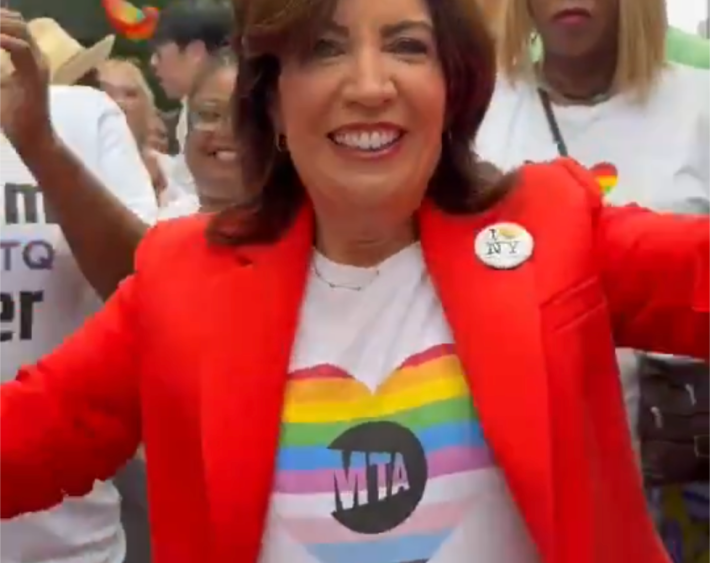
The brief doesn't touch on the statements Hochul has made since announcing her "indefinite pause" of congestion pricing, but the governor has yet to claim any legal basis for her actions.
In her June 5 video announcing the pause, she referenced cost-of-living concerns, which she said made beginning congestion pricing's planned June 30 launch too risky for New York's economy. Hochul has also cited conversations with diner patrons influenced her decision, and said she felt $15 was too high compared to London's initial congestion pricing charge of £5 in 2003 (the equivalent of $14 today).
While it's difficult to get a court to agree with lawsuits arguing that a government action was "arbitrary and capricious," and therefore invalid, Hochul's actions in instituting the pause and explaining it have been outside the bounds of what's supposed to be rational governance, according to legal experts.
"[I]t's quite likely that whatever has happened here is not consistent with the congestion pricing statute, or with the administrative procedures that are typically followed," Michael Pollack, a law professor at the Benjamin N. Cardozo School of Law previously told Streetsblog. "It's odd, and it's certainly not how government agencies are supposed to make decisions."
The governor has on the one hand leaned into a dictatorial view that she alone makes the call on enormous state issues like congestion pricing, while contradictorily saying said she can't fix the situation without the state legislature stepping in to find an alternative.
If the court were to agree with her, the four legislators write, it would open up a world in which every time the MTA does something controversial the governor would be able on a case-by-case basis to just rip up the decision or let it stand, leaving it unclear who really runs the show.
"By inferring an unwritten gubernatorial power to 'indefinitely pause' MTA decisions, this court would make impossibly opaque the actual responsibility for MTA decisions," they said. "Governors would still be able to hide behind the MTA by citing the latter’s official statutory responsibility to make independent judgments about transit policy. At the same time, governors would also be able to make ad hoc interventions to subvert the MTA’s independence, by, for instance, 'pausing' the MTA’s decisions when such a decision conferred short-term political advantages.
"Such a hybrid system of control ... would be the worst of both worlds: It would give the Governor power without legal responsibility, leaving voters completely in the dark as to who was really in charge of the transportation infrastructure that the MTA ostensibly manages."
Reps for Gov. Hochul did not respond to a request for comment.
